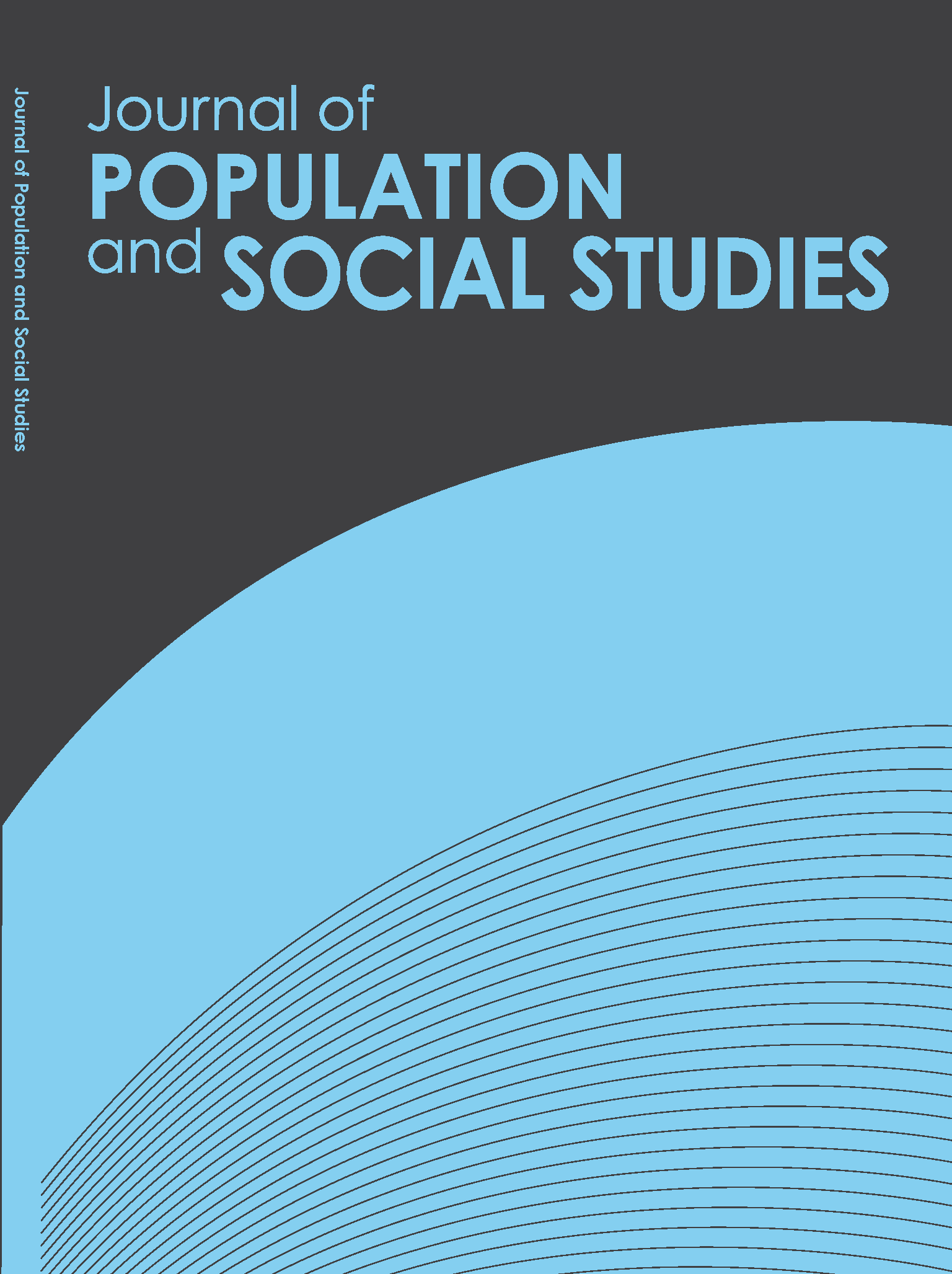The Policy and Politics of Influencing Interbreeding to Increase Population during the Regime of General Phibun and Its Unintended Consequence on the Status of Thai Women
Main Article Content
Abstract
The aim of this paper is to explore the population policy during the regime of General Phibun and the political and social implications of government campaigns which actively sought to increase population. The policy was introduced in Thailand after the Second World War and was influenced by the theory of eugenics as well as a sense of urgency in advancing a radically different population policy. General Phibun, the Prime Minister of Thailand from both 1938 to 1944 and 1948 to 1957 carried out a number of salient social reforms that impacted women both positively and adversely in significant ways. Following the establishment of the Ministry of Health in 1942, the government implemented a policy to increase population, especially among certain sectors of society, as a primary policy agenda. With this salient aim of increasing population, the Organization for Marriage Support was founded as one of the agencies which used specific incentives to get healthy couples to marry and have children. Based largely on available official announcements and public records from the 1940s, this paper will discuss the mobility and status of middle-class women as they became subjects of the government’s policy on population.
Article Details
References
• Barmé, S. (2002). Woman, man, Bangkok: Love, sex, and popular culture in Thailand. Lanham: Rowman & Littlefield.
• Chutima, Y. (1956). Samut khumue chiwit anamai [Healthy lifestyles handbook]. Cremation volume of Lamom Saelim, Bangkok: Thailand.
• Kawinraweekun, K. (2002). Kan sang rangkai phonlamueang thai nao samai chomphon Por. Phibunsongkhram phor.sor. 2481-2487 [Constructing the body of Thai citizens during the Phibun regime of 1938-1944]. (Thesis), Sociology and Humanities. Thammasat University, Thailand.
• Khamphiban, N. (1987). Nayobai keawkup phuying nai smai sangchat khong chomphon Por. Phibunsongkhram phor.sor. 2481-2487. [Policies affected women during the nation-building period of Field Marshall Phibunsongkhram, 1939-1945]. (Thesis), Thammasat University, Thailand.
• Krom Sinlapakon (2004). Satri samkhan nai prawatisat thai [Important women in Thai history]. Bangkok: Krom Sinlapakon.
• National Archives of Thailand. (1937). Ways to increase the population growth. Sor. Ror. 0201.25/1034. Office of Prime Minister, Bangkok, Thailand.
• National Archives of Thailand. (1941). To increase population of Thailand. Sor. Ror. 0201.5/23. Office of Prime Minister, Bangkok Thailand.
• National Archives of Thailand. (1942a). Civil servant’s families. Mor. Thor. 2.2. 11/13 Nor. Wor. 219/2485. Ministry of Interior, Bangkok, Thailand.
• National Archives of Thailand. (1942b). Supporting civil servants to attend mass marriage ceremony. Sor. Thor. 0701.29/27. Ministry of Education, Bangkok, Thailand.
• National Archives of Thailand. (1942c). Training session offered to civil servants and families held on August 26th 1942. Mor. Thor. 2.2. 11/13. Ministry of Interior, Bangkok, Thailand.
• National Archives of Thailand. (1943a). Encouraging civil servants to nominate their wives to Mother’s Health Contest. Mor. Thor. 2.2/12/34 Mor. 265/2486. Ministry of Interior, Bangkok, Thailand.
• National Archives of Thailand. (1943b). Mother’s Health Contest. Mor. Thor. 2.2/12/34. Ministry of Interior Bangkok, Thailand
• National Archives of Thailand. (1943c). Photograph of mass marriage ceremony at Supatnaram Temple, Ubonratchathani Province (2). Por.003 Hor. Wor. Yor. 2/1. Bangkok, Thailand.
• National Archives of Thailand. (1943d). Requesting to provide assistance for mass marriage ceremony. Mor. Thor. 2.2.12/8. Ministry of Interior, Bangkok, Thailand.
• National Archives of Thailand. (1943e). Supporting marriages of the nation. 5.9/145 Mor. 2808/2486. Ministry of Interior, Bangkok, Thailand.
• National Archives of Thailand. (1954a). Statistics of female civil servant of the Department of Public Welfare. Mor. Thor. 0201.2.1.18/21(3). Ministry of Interior Bangkok, Thailand.
• National Archives of Thailand. (1954b). The openings of Women’s Cultural Societies in the provinces. Mor. Thor. 0201.2.1.18/19(2). Ministry of Interior, Bangkok, Thailand.
• National Archives of Thailand. (1954c). Women’s Cultural Society. Mor Thor. 0201.2.1.18/19(46). Ministry of Interior, Suphanburi, Thailand.
• Oakley, A. (1991). Eugenics, social medicine and the career of Richard Titmuss in Britain 1935-50. British Journal of Sociology, 165-194.
• Panyarachun, J. (1997). Chiwaprawat phon-ngan khong than-phuying La-iad Phibunsongkhram [The biography of the works of La-iad Phibunsongkhram] Bangkok: Dansattha Printing.
• Photchanalawan, P. (2009, August 12). Wanmae nai totsawat 2480: sex khwamrak kup khwampen ‘maephan’ haengchat [Mother’s Day in 1937: Sex, Love, and Mother of the Nation]. Prachathai. Retrieved on June 3, 2019 from https://prachatai.com/print/25415
• Phuwongcharoen, P., Thepsongkhro, S., & Chaiching, N. (2018). Yak luem klup cham:sarakkhadi chiwaprawat luksao chomphon Por [Trying hard to forget: the biography of General Phibun’s daughter]. []. Matichon: Bangkok.
• Suklarpkit, S. (2013). Monogamy in modern Thai society, 1870s-1940s (Thesis), Faculty of Arts. Chulalongkorn University, Thailand.
• The Holocaust Museum & Education Center (2019). DNA and Eugenics in Nazi Germany. Retrieved June 3, 2019, from https://www.holocaustmuseumswfl.org/.


